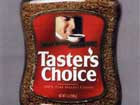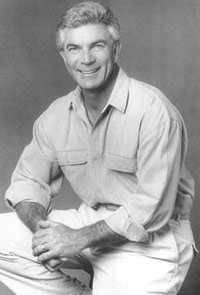
California Supreme Court hears case of unwitting Taster's Choice model
The dispute, which is being closely watched by the entertainment and media industries, involves a model who sued Nestle USA after discovering his face on a coffee jar.
By Maura Dolan
June 4, 2009
source:
Los Angeles Times
男模克里斯托夫上告雀巢公司案件:雀巢咖啡品牌Taster’s Choice罐子上面20多年來都貼著克里斯托夫的照片,如今加州最高法院將決定雀巢是否該付出一千五百多萬美元的賠償金。
Reporting from San Francisco -- The California Supreme Court appeared divided Wednesday over how to handle a $15.6-million jury verdict won by a model who discovered his face on a jar of Taster's Choice coffee.
The case is being closely watched by the entertainment and media industries. The Motion Picture Assn. of America and the Los Angeles Times have sided with Nestle USA Inc., the maker of Taster's Choice, while the Screen Actors Guild and the American Federation of Television and Radio Artists support the model, Russell Christoff.
Christoff said he posed for Nestle in 1986 for $250 and had a signed contract that he would receive more money if his picture was used in advertising. The contract also said that any other use of his photograph had to be negotiated.
Standing in line at a Home Depot store in May 2002, Christoff, then a teacher, said a woman told him he looked like the guy on the coffee jar. Two months later, Christoff saw his mug on a coffee jar while shopping at a Rite Aid drugstore.
Christoff sued, alleging unauthorized use of his image for commercial purposes. Nestle said it mistakenly believed that it had permission to use the photo and had been using it for years on Taster's Choice labels.
An appeals court in Los Angeles threw out a 2005 verdict against Nestle on the grounds that Christoff missed a legal deadline. The court said the case fell under the purview of invasion-of-privacy law, covered by a rule that says suits must be brought within two years of the publication at issue. Previous cases decided under that rule involved claims of defamation.
In Wednesday's oral argument, held in Los Angeles and monitored at the court's San Francisco headquarters, Justice Kathryn Mickle Werdegar said the rule was directed at single publications by newspapers and broadcasts but that the Nestle case involved "a continuing course of conduct."
"That doesn't seem to fit a decades-long marketing of a product with someone's misappropriated image," she said. She likened the use of Christoff's photograph to theft.
Kelli L. Sager, representing Los Angeles Times Communications, said a ruling against Nestle could harm newspapers and threaten freedom of speech.
"But this is a commercial enterprise, which in my mind puts it into a different light," Werdegar said.
Justice Ming W. Chin, however, indicated that the rule for the news media should apply to product labels, while Chief Justice Ronald M. George suggested that the court did not have enough information to determine whether Nestle's use of the photograph constituted a single publication that would have invoked the two-year legal deadline. The trial court did not take evidence on that question.
Justice Joyce L. Kennard asked whether a case involving misappropriation of a person's likeness was more akin to an infringement of a copyright than an invasion of privacy. The lawyers for Nestle said no. Christoff's lawyer said yes.
"This is not a case that has anything to do with free speech," said Colin C. Claxon, representing Christoff. "This is a case about free advertising."
The court's decision in Christoff vs. Nestle USA is due within 90 days.

Model Russell Christoff, whose photo appeared on Taster’s Choice coffee labels for years without his knowledge, won a $15.6-million jury verdict against Nestle USA in 2005.
